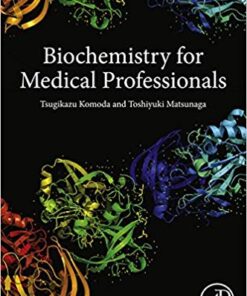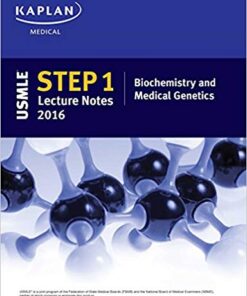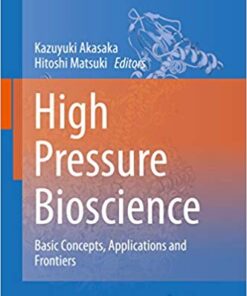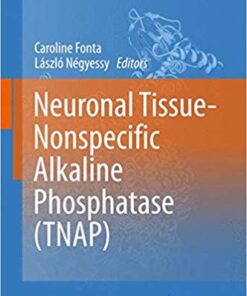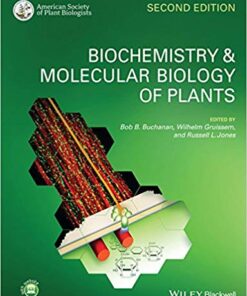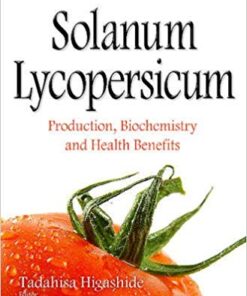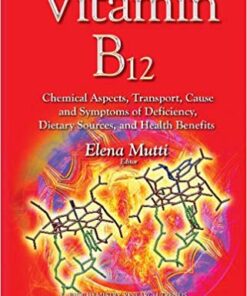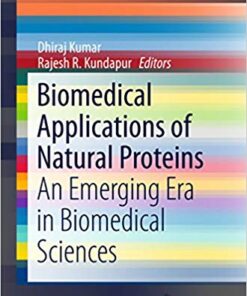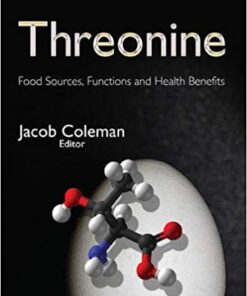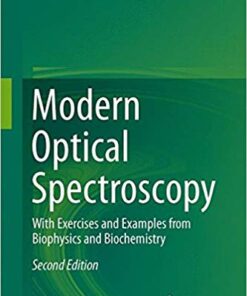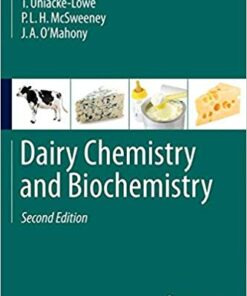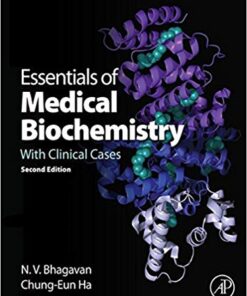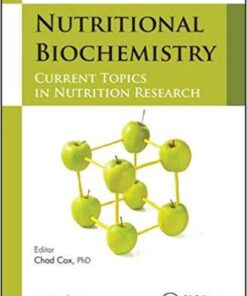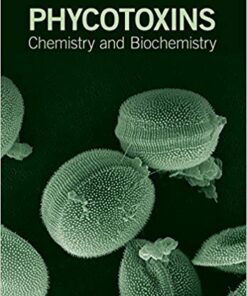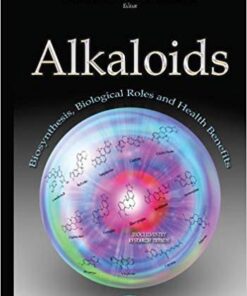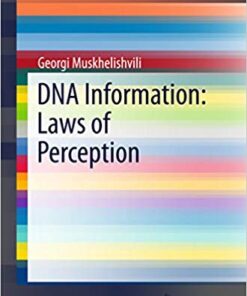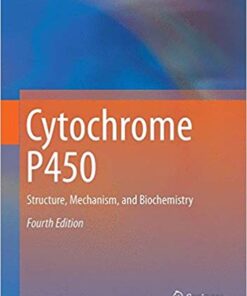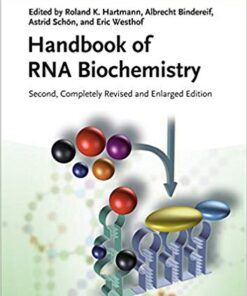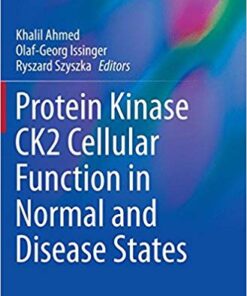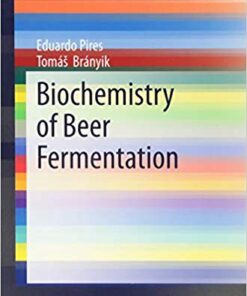Biochemistry Books
Biochemistry Books
Cellulose and Cellulose Composites: Modification, Characterization and Applications
Biochemistry Books
USMLE Step 1 Lecture Notes 2016: Biochemistry and Medical Genetics
Biochemistry Books
Neuronal Tissue-Nonspecific Alkaline Phosphatase (TNAP) (Subcellular Biochemistry) 1st ed
Biochemistry Books
Derivative Spectrophotometry and PAM-Fluorescence in Comparative Biochemistry 1st ed
Biochemistry Books
Biochemistry Books
Solanum Lycopersicum: Production, Biochemistry and Health Benefits
Biochemistry Books
Reviews of Physiology, Biochemistry and Pharmacology Vol. 169 1st ed.
Biochemistry Books
Biochemistry Books
Biochemistry Books
Essentials of Medical Biochemistry: With Clinical Cases 2nd Edition
Biochemistry Books
Nutritional Biochemistry: Current Topics in Nutrition Research 1st Edition
Biochemistry Books
Biochemistry Books
Alkaloids: Biosynthesis, Biological Roles and Health Benefits (Biochemistry Research Trends)
Biochemistry Books
DNA Information: Laws of Perception (SpringerBriefs in Biochemistry and Molecular Biology)
Biochemistry Books
Cytochrome P450: Structure, Mechanism, and Biochemistry 4th ed. 2015 Edition
Biochemistry Books
Introduction
Are you looking for the best biochemistry books to help you understand the fundamentals of this complex science? Whether you are a student or a professional, having the right resources can make all the difference in your studies. Discover the Best Biochemistry Books for Students and Professionals, which provides an extensive list of recommended titles that will help you gain a better understanding of biochemistry. From textbooks to reference guides, these books cover a wide range of topics, from basic concepts to advanced research. With this guide, you can find the perfect book to meet your needs and take your biochemistry knowledge to the next level.
Overview of the Most Popular Biochemistry Books for Students and Professionals
Biochemistry is a complex and fascinating field of science that studies the chemical processes within living organisms. It is an essential part of many scientific disciplines, including medicine, biology, and nutrition. As such, it is important for students and professionals to have a good understanding of biochemistry in order to be successful in their respective fields. Fortunately, there are many excellent biochemistry books available that can help readers gain a better understanding of this important subject.
The most popular biochemistry books for students and professionals include:
1. Lehninger Principles of Biochemistry by David L. Nelson and Michael M. Cox: This book is considered to be the gold standard for biochemistry textbooks. It provides a comprehensive overview of the fundamentals of biochemistry, including topics such as metabolism, enzymes, proteins, nucleic acids, and more. The book also includes helpful diagrams and illustrations to aid in understanding the material.
2. Biochemistry by Jeremy M. Berg, John L. Tymoczko, and Lubert Stryer: This book is another popular choice for biochemistry students and professionals. It covers all the major topics in biochemistry, from basic concepts to advanced topics. The book also includes helpful diagrams and illustrations to help readers understand the material.
3. Biochemistry: A Short Course by John L. Tymoczko and Jeremy M. Berg: This book is designed to provide a concise overview of biochemistry. It covers all the major topics in biochemistry, but does so in a shorter format than other biochemistry textbooks. This makes it ideal for those who need a quick refresher on the subject.
4. Essential Biochemistry by Charlotte W. Pratt and Kathleen Cornely: This book is designed to provide a comprehensive overview of biochemistry for students and professionals. It covers all the major topics in biochemistry, including metabolism, enzymes, proteins, nucleic acids, and more. The book also includes helpful diagrams and illustrations to aid in understanding the material.
5. Biochemistry: The Molecular Basis of Life by Trudy McKee and James R. McKee: This book is designed to provide a comprehensive overview of biochemistry for students and professionals. It covers all the major topics in biochemistry, including metabolism, enzymes, proteins, nucleic acids, and more. The book also includes helpful diagrams and illustrations to aid in understanding the material.
These five books are some of the most popular biochemistry books for students and professionals. They provide comprehensive coverage of the subject and are written in an easy-to-understand manner. Whether you are a student or professional, these books will help you gain a better understanding of biochemistry and its importance in the world today.
Exploring the Benefits of Reading Biochemistry Books for Academic Success
Reading biochemistry books is an important part of academic success. Biochemistry is a complex and fascinating field of study, and having a good understanding of the subject can help students excel in their studies. Reading biochemistry books can provide students with a comprehensive overview of the subject, as well as detailed information on specific topics.
Biochemistry books can be used to supplement classroom learning. By reading biochemistry books, students can gain a better understanding of the material they are studying in class. This can help them to better comprehend the concepts being taught and to apply them more effectively. Additionally, biochemistry books can provide students with additional resources for further exploration of the subject.
Reading biochemistry books can also help students develop critical thinking skills. By reading biochemistry books, students can learn to analyze data and draw conclusions from it. This can help them to become better problem solvers and to think more critically about the material they are studying.
Biochemistry books can also help students stay up-to-date on the latest developments in the field. By reading biochemistry books, students can keep abreast of new research and discoveries that may have implications for their studies. This can help them to stay ahead of the curve and to be prepared for any changes or advancements in the field.
Finally, reading biochemistry books can help students develop a deeper appreciation for the subject. By reading biochemistry books, students can gain a greater understanding of the complexities of the field and the importance of its study. This can help them to appreciate the subject more fully and to be more motivated to pursue it.
Overall, reading biochemistry books can be a great way for students to enhance their academic success. By reading biochemistry books, students can gain a comprehensive overview of the subject, develop critical thinking skills, stay up-to-date on the latest developments in the field, and develop a deeper appreciation for the subject. All of these benefits can help students to excel in their studies and to achieve their academic goals.
Analyzing the Different Types of Biochemistry Books Available
Biochemistry books are an invaluable resource for anyone interested in learning more about the science of biochemistry. They provide a comprehensive overview of the subject, from basic concepts to advanced topics. There are many different types of biochemistry books available, each with its own unique approach and focus.
The most common type of biochemistry book is the textbook. These books are designed to provide a comprehensive overview of the subject, covering all the major topics in biochemistry. Textbooks typically include detailed explanations of biochemical processes, diagrams, and examples. They also often include practice problems and review questions to help students understand the material.
Another type of biochemistry book is the reference book. These books are designed to provide quick access to specific information. They usually contain tables, charts, and diagrams that can be used to quickly look up information. Reference books are often used by researchers and professionals who need to quickly find specific information.
In addition to textbooks and reference books, there are also biochemistry lab manuals. These books provide step-by-step instructions on how to perform various experiments and procedures in the laboratory. Lab manuals are essential for anyone who wants to learn more about biochemistry in a hands-on way.
Finally, there are biochemistry study guides. These books provide an overview of the subject and offer tips and strategies for studying biochemistry. Study guides are especially useful for students who are preparing for exams or other assessments.
No matter what type of biochemistry book you are looking for, there is sure to be one that meets your needs. Whether you are a student, researcher, or professional, biochemistry books can provide you with the knowledge and skills you need to succeed.
Examining the Best Biochemistry Books for Different Levels of Learners
Biochemistry is a complex and fascinating field of study that can be intimidating for learners of all levels. Fortunately, there are many excellent biochemistry books available to help students understand the subject. Whether you’re a beginner or an advanced learner, there’s a book out there that can help you gain a better understanding of biochemistry. Here, we’ll take a look at some of the best biochemistry books for different levels of learners.
For beginners, one of the best biochemistry books is “Biochemistry: A Short Course” by John L. Tymoczko and Jeremy M. Berg. This book provides a comprehensive overview of biochemistry, covering topics such as metabolism, enzymes, proteins, nucleic acids, and more. It also includes helpful diagrams and illustrations to help readers visualize the concepts being discussed. The authors also provide plenty of practice problems to help readers test their understanding of the material.
For intermediate learners, “Biochemistry: The Molecular Basis of Life” by Trudy McKee and James R. McKee is an excellent choice. This book provides a detailed look at the molecular basis of life, including topics such as DNA replication, protein synthesis, and metabolic pathways. It also includes helpful diagrams and illustrations to help readers visualize the concepts being discussed. Additionally, the authors provide plenty of practice problems to help readers test their understanding of the material.
For advanced learners, “Biochemistry: A Comprehensive Textbook” by David L. Nelson and Michael M. Cox is an excellent choice. This book provides a comprehensive overview of biochemistry, covering topics such as metabolism, enzymes, proteins, nucleic acids, and more. It also includes helpful diagrams and illustrations to help readers visualize the concepts being discussed. Additionally, the authors provide plenty of practice problems to help readers test their understanding of the material.
No matter what level of learner you are, there’s a biochemistry book out there that can help you gain a better understanding of the subject. With the right book, you can gain a deeper understanding of biochemistry and become a more successful student.
Understanding How to Choose the Right Biochemistry Book for Your Needs
Choosing the right biochemistry book for your needs can be a daunting task. With so many books on the market, it can be difficult to know which one is best suited for you. To make sure you get the most out of your purchase, it’s important to understand what type of biochemistry book you need and how to choose the right one.
First, consider the level of biochemistry knowledge you have. If you are just starting out in the field, then you will want to look for an introductory book that covers the basics. On the other hand, if you already have some experience with biochemistry, then you may want to look for a more advanced book that covers more complex topics.
Next, think about the format of the book. Do you prefer a traditional textbook or would you rather have an online version? Traditional textbooks are great for studying at home, but they can be expensive and bulky. Online versions are often cheaper and more convenient, but they may not provide as much detail as a physical book.
Finally, consider the cost of the book. Biochemistry books can range from very affordable to quite expensive. It’s important to find a book that fits within your budget while still providing the information you need.
By taking the time to consider these factors, you can ensure that you choose the right biochemistry book for your needs. With the right book, you can gain a better understanding of biochemistry and use it to further your studies or career.
Conclusion
In conclusion, biochemistry books are essential for students and professionals alike. Whether you’re looking to gain a better understanding of the fundamentals or delve into more advanced topics, there is a book out there that can help you reach your goals. With so many options available, it can be difficult to know which one is best for you. Fortunately, this article has provided an overview of some of the top biochemistry books on the market today, making it easier to discover the perfect book for your needs.

